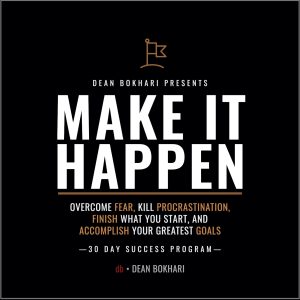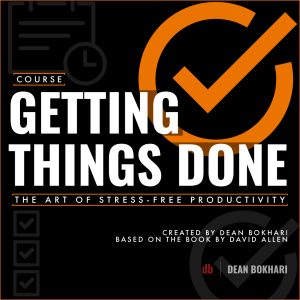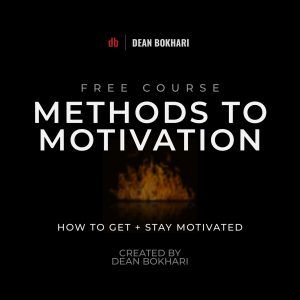“Any attachment to a desired result creates suffering,” she said.
“But isn’t that how we stay motivated? How else would we do the right thing when it’s difficult… stay polite when we’re angry, push through when we want to quit?” he responded.
Their conversation reminded me that we often confuse attachment with care. Control with love.
I know this pattern intimately… the way my body tenses when I’m invested in an outcome. The elaborate scenarios of disappointment I construct before anything has even happened. This is what control looks like from the inside.
As Glennon Doyle puts it:
“We only control what we don’t trust. We can either control ourselves or love ourselves, but we can’t do both. Love is the opposite of control. Love demands trust.”
The Motive Trap
But what does this have to do with staying motivated?
I’m not talking about the kind of intrinsic motivation that arises in the present moment (what some call flow). That impulse to create, to serve, to move with joy is not control. It’s life moving through us.
What I’m talking about is what some call psychological motives¹, the attachments tethered to an end result, the type of motivation that’s laced with fear and approval-seeking, that hijacks our nervous systems:
- I hope my friend tells me she loves the food I cooked for her.
- I hope they text me back quickly.
- I need my kids to appreciate the sacrifices I’ve made for them.
- I have to get this job interview right.
- One day I’ll be a famous influencer and then I’ll feel worthy.
- Once I find the right partner, then I’ll be happy.
These motives don’t just attach us to outcomes; they pull us completely out of the present moment and into an imagined future where our worth depends on something external happening.
The moment we shift from practical thoughts (what time is dinner, what ingredients do I need) to these result-oriented motives, we’re no longer in control… because now, we’re being controlled by our thoughts.
Most of us have been trained to believe we need these attachments to stay motivated, to do the right thing.
But there’s a difference between caring and being attached. Caring says ‘I’ll do my best.’ Attachment says ‘I must have this specific outcome or I’ll suffer.’ One comes from love, the other from fear.
This fear-based attachment is what creates those psychological motives.
Thoughts motivated by fear believe a fundamental lie: that humans are intrinsically bad and need to be controlled.
Here’s the paradox though: when we’re attached to performing well, our performance actually suffers. The job interview goes better when we’re prepared but not desperate. The parenting moment flows when we’re present, not performing our idea of ‘good parent.’
Conditioning Disguised as Morality
I used to think moral codes and the fear of consequences kept people in line. But then I asked: Is this working? Are people harming each other less?
Think about violence: a bar fight, road rage, family abuse.
Does it happen because someone lacks moral knowledge? Or because fear, trauma, and conditioning have overtaken their system?
Even when we “know better,” control keeps such conditioning alive.
Something like murder doesn’t come from lack of moral codes or punishments. It comes from thoughts that are controlled (motivated 😉) by fear, greed, and unhealed trauma.
Controlling humanity with moral rules and fear-based thoughts is the conditioning.
It’s a systemized form of controlling people’s minds, hearts, and true essence: a system that fundamentally distrusts humanity and, by doing so, perpetuates the very violence it claims to prevent.
When such fear-based thoughts are gone, what remains?
Would a truly free and clear mind commit harm when there’s nothing inside to protect or defend?
The Science + The Wisdom
Neuroscience backs this up: when we release fear-based conditioning, the brain naturally orients toward empathy, cooperation, and creativity.
Ancient wisdom tells us: peace is found in trust, not prediction.
The more we try to control our way to goodness, the more we reinforce the very stories that create suffering.
Stories create drama. Truth creates ease.
Embodied Truth
I can feel the difference between living in stories versus living in truth right inside my body.
When I catch myself in attachment mode, my body tells the whole story: shallow breathing, tight shoulders, that low-grade anxiety humming in my chest.
Some argue that anxiety motivates us, but anxiety is just fear masquerading as preparation. True motivation comes from clarity and purpose in the present moment, not from the stress of needing specific outcomes in the future.
When I do the radical act of dropping the attachment and trusting the process: everything shifts.
My breathing deepens.
My shoulders soften.
There’s space where there was once contraction.
What this looks like in real life is far from idealistic. For instance, as I write this article, I’m very aware of my psychological motives wanting you to like this, comment on it, approve of it. The difference from my past self is that I no longer hyper-identify with that thought. I see it as a thought that’s trying to control my peace and joy in this present moment.
So I release that attachment and focus on something true: I’m actually writing this piece for me, not you. It helps me process, digest, and embody these concepts. Whether you love it, hate it, or never read it at all doesn’t change the value it brings to my own understanding.
That’s what trust looks like in practice… doing the thing because it serves something authentic in you, not because you need a specific response from the world.
Revolution Through Trust
This conditioning hits women especially hard. We’re taught our worth depends on others’ approval, that we must control ourselves to be ‘good enough.’ Breaking free from attachment isn’t just personal growth. It’s reclaiming our inherent power.
This isn’t just personal. It’s revolutionary.
Every time we trust ourselves instead of controlling ourselves, we chip away at the lie that humans (especially women) must be policed to be good.
I do want to validate that you’re not broken for having these motives. You were trained to have them.
But you also get to choose differently.
So, here is an insanely radical invitation for you…
Power Moves
Pick one thing today that you’ve attached a result to. Maybe it’s a conversation you need to go perfectly, or kids’ activities where you absolutely must be on time.
Do the practical steps needed, but let go of the attachment to the outcome. Trust that you’ll be okay whether it unfolds exactly as you imagined or not.
Notice the experience. Notice not just what happens, but how your body feels when you walk in trust instead of control.
When you catch yourself spiraling mid-attachment, pause and ask: ‘What would I do right now if I trusted this would work out?’ Then do that. Your body will guide you back to the practical steps.
Chances are, you’ll reach your destination without the suffering (without the anxiety, restlessness, and endless mental stories).
Because love, it turns out, demands that we trust ourselves enough to let go.
¹ Inspired by Krishnamurti’s studies and a dialogue group I attended at the Pepper Tree Retreat in Ojai, CA (which was truly transformational).


